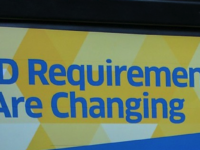The last Parliament featured debate over several contentious Internet-related bills, notably streaming and news laws (Bills C-11 and C-18), online harms (Bill C-63) and Internet age verification and website blocking (Bill S-210). Bill S-210 fell below the radar screen for many months as it started in the Senate and received only cursory review in the House. The bill faced only a final vote in the House but it died with the election call. This week, the bill’s sponsor, Senator Julie Miville-Dechêne, wasted no time in bringing it back. Now Bill S-209, the bill starts from scratch in the Senate with the same basic framework but with some notable changes that address at least some of the concerns raised by the prior bill (a fulsome review of those concerns can be heard in a Law Bytes podcast I conducted with Senator Miville-Dechêne).
Post Tagged with: "Miville-Dechêne"
Bill S-210 is Just the Beginning: How a Canadian Digital Lobby Group is Promoting a Standard to “Foster Widespread Adoption of Age Verification Technologies in Canada”
This week’s Law Bytes podcast features a revealing discussion with Senator Julie Miville-Dechêne, the chief architect and lead defender of Bill S-210 or the Protecting Young Persons from Exposure to Pornography Act. It may be the most dangerous Internet bill you’ve never heard of since it contemplates measures that raise privacy concerns, website blocking, and extend far beyond pornography sites to include search and social media. The bill started in the Senate and is now in the House of Commons, where last year Conservative, NDP, and Bloc MPs voted alongside a small number of Liberal MPs in favour of it at second reading and sent it to committee for further study. The government has called the bill “fundamentally flawed”, but there may be sufficient House support to turn it into binding legislation.
While Senator Miville-Dechêne emphasizes stopping underage access to sexually explicit material and her view that that goal merits site blocking and mandated age verification even for some uses of Google and Twitter, a new standards initiative suggests that some envision far more extensive use of mandated age verification systems. The Digital Governance Council is one of several Jim Balsillie-led organizations focused on influencing government digital and innovation policy. Its CEO is Keith Jansa, who Senator Miville-Dechêne identified in the Law Bytes podcast as her source for providing assurance of the privacy safeguards in the bill.
Site Blocking and Age Verification for Twitter, Instagram, Snap and Twitch?: Age Verification Lobby Confirms it Wants Bill S-210 to Cover All Social Media Sites
Bill S-210 – the Protecting Young Persons from Exposure to Pornography Act – burst onto the public scene late last year as a majority of the House voted for the bill at second reading, sending it to the Public Safety committee for review. The bill, which is the brainchild of Senator Julie Miville-Dechêne, was supported by the Conservatives, Bloc and NDP with a smattering of votes from backbench Liberal MPs (the cabinet voted against, signalling it is not supported by the government). The bill raises significant concerns with the prospect of government-backed censorship, mandated age verification to use search engines or social media, and a framework for court-ordered website blocking (I appeared before the Senate committee that studied by the bill in February 2022, arguing that “by bringing together website blocking, face recognition technologies, and stunning overbreadth that would capture numerous mainstream services, the bill isn’t just a slippery slope, it is an avalanche.”).
In response to the public criticism of the bill, Senator Julie Miville-Dechêne has suggested that concerns about it extending to general purpose social media sites is overstated since the intent is to target adult content sites. Yet that is not what the bill provides as it applies to anyone who makes sexually explicit material available on the Internet for commercial purposes:
The Most Dangerous Canadian Internet Bill You’ve Never Heard Of Is a Step Closer to Becoming Law
After years of battles over Bills C-11 and C-18, few Canadians will have the appetite for yet another troubling Internet bill. But given a bill that envisions government-backed censorship, mandates age verification to use search engines or social media sites, and creates a framework for court-ordered website blocking, there is a need to pay attention. Bill S-210, or the Protecting Young Persons from Exposure to Pornography Act, was passed by the Senate in April after Senators were reluctant to reject a bill framed as protecting children from online harm. The same scenario appears to be playing out in the House of Commons, where yesterday a majority of the House voted for the bill at second reading, sending it to the Public Safety committee for review. The bill, which is the brainchild of Senator Julie Miville-Dechêne, is not a government bill. In fact, government ministers voted against it. Instead, the bill is backed by the Conservatives, Bloc and NDP with a smattering of votes from backbench Liberal MPs. Canadians can be forgiven for being confused that after months of championing Internet freedoms, raising fears of censorship, and expressing concern about CRTC overregulation of the Internet, Conservative MPs were quick to call out those who opposed the bill (the House sponsor is Conservative MP Karen Vecchio).
SOCAN Tosses Senators and Digital Creators Under Legislative Bus With New Bill C-11 Misinformation Campaign
SOCAN, a leading Canadian music copyright collective, has launched a misinformation campaign seeking to convince the government to reject a Bill C-11 Senate-backed amendment designed to ensure that the bill covers sound recordings but excludes user content from CRTC regulation. SOCAN has written to all MPs arguing that the amendment should be rejected on the grounds that it could hamper the regulation of “future online services, whose model for delivery of content is not yet known.” In other words, its primary argument is not that the amendment harms its interests today, but rather it is possible that it might restrict some unknown future application. Given its inability to identify a current problem with the amendment, the SOCAN campaign actually serves to confirm that it is consistent with the government’s objectives.











